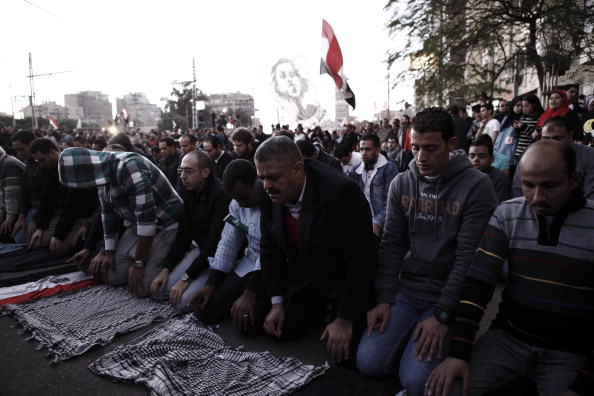
A group of Egyptian protesters perform evening prayers during a demonstration against Egyptian President Mohammed Morsi in front Egypt’s Presidential Palace on December 7, 2012 in Cairo, Egypt. Anti-Morsi protesters continue to demonstrate across Egypt against the country’s draft constitution, rushed through parliament in an overnight session on November 29. The country’s new draft constitution, passed by a constitutional assembly dominated by Islamists, will go to a referendum on December 15. (Photo by Ed Giles/Getty Images)
Two years after the resignation of President Mubarak, here we are once again with protesters back in the Egyptian streets, facing army tanks and tear gas and this time with human rights defenders openly expressing concerns about the possibility of civil war.
There’s only one way out of this: Egypt has to build a new political future based on respect for human rights. The proposed Constitution falls short of this, and if President Morsi wants to back his claim to be president “for all Egyptians,” he must demand accountability for past human rights abuses and add constitutional protections for fundamental freedoms, particularly for women, before the document is submitted to voters for ratification.